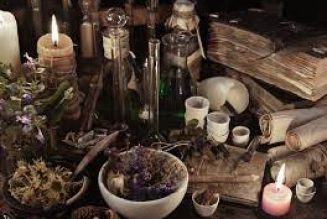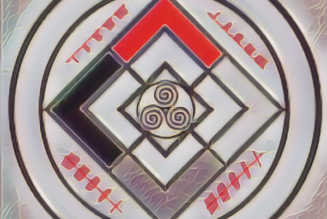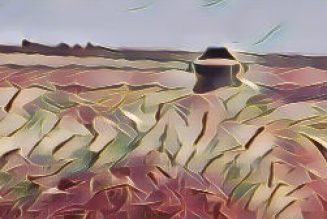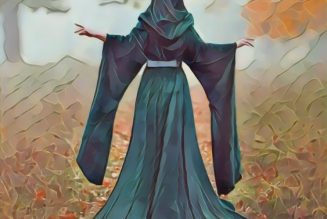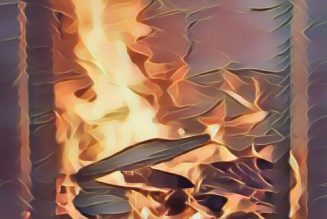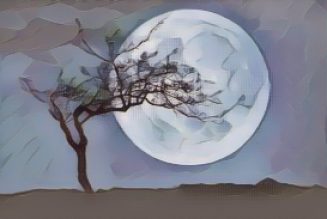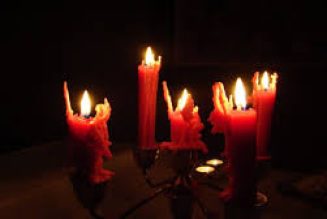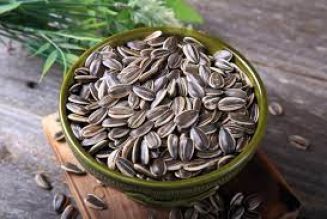A phosphorescent light seen in marsh and swamp areas, which in folklore is either the manifestation of a malicious lost soul or a death omen.
Jacko’-lantern is known by various names, including will-o’-the-wisp and corpse light (England); fairy light, and fox fire (Ireland).
According to most legends, the jack-o’-lantern is a wandering soul who has been denied entry into both heaven and hell.
Clothed in a luminous garment or carrying a lighted wisp of straw, it drifts about at night, scaring travelers and beckoning them to follow it into the marshes.
Charms to protect oneself against the spirit include carrying an object made of iron, which is believed to repel evil spirits or sticking an iron knife into the ground.
In Ireland, children who are caught outdoors after dark are told to wear their jackets inside-out in order not to be lured astray by a jack-o’-lantern.
In Sweden, the spirit is believed to be the soul of an unbaptized child, who tries to lead travelers to water in hopes of receiving baptism.
The jack-o’-lantern also appears in American Indian and Appalachian folklore.
The Penobscot Indians call it the “fire demon,” who has lighted fingertips which it spins in a wheel, and skims the milk at dairies during the night.
In the Appalachians, mysterious, firelike balls of light appear in the hills at night and float, move and bob about the countryside.
Some are quite large and rise high into the air; others light up the surroundings like daylight.
In Africa, the jack-o’-lantern light is called a “witch-fire” and is believed to be the witch herself, flying through the air, or a light sent by the witch to scare wrongdoers.
As a corpse light, the eerie glow forecasts death in a household by hovering over a rooftop or even appearing on top of the chest of the person who is about to die.













